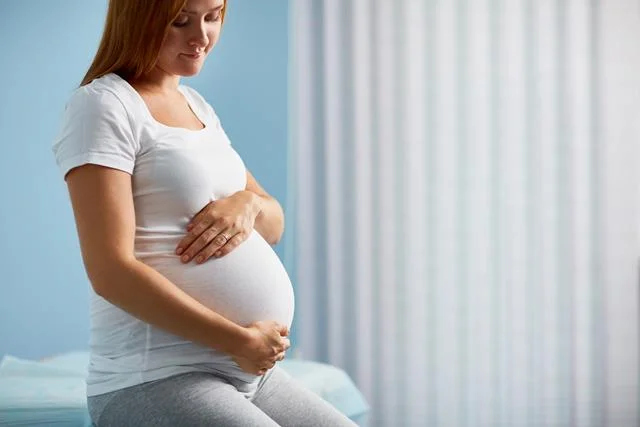Back pain in the kidney area during pregnancy requires medical consultation and diagnostic examinations. Its occurrence can indicate a urinary tract infection, kidney stones, or kidney inflammation. In any case, prompt treatment is essential, as these conditions can pose a risk to the fetus.
The term “kidney pain” refers to pain in the lumbar region, usually on one side. The pain comes on suddenly and is described as throbbing, stabbing, or colicky, and it radiates vertically. It often spreads to the groin, lower abdomen, or genitals. Other symptoms may include fever, urinary problems, swelling, and general weakness. It is important to emphasize that in the vast majority of cases, kidney diseases do not cause pain. Therefore, regular check-ups, especially during pregnancy, are essential.
What does pain in the kidney area during pregnancy indicate?
After conception, changes occur in a woman’s urinary system to prepare the body for pregnancy and childbirth. The kidneys enlarge (by up to 1 cm), the renal pelvis, calyces, and ureters widen, and blood flow through the organ increases. The growing uterus places pressure on the kidneys. During pregnancy, the risk of urinary tract infections increases, and these infections often remain asymptomatic for a long time.
Pain in the kidney area during pregnancy can result from pathological processes in the urinary system. The most common conditions include:
- Kidney stones
- Bacterial urinary tract infections
- Kidney inflammation
- Kidney cysts
Sometimes, pain in the lumbar area is mistakenly interpreted as kidney pain. During pregnancy, ligaments in the pelvis stretch, and the back muscles are excessively strained. Nevertheless, no symptom should be ignored—when in doubt, always consult a doctor.
Pyelonephritis (kidney pelvis inflammation) during pregnancy
One of the most dangerous conditions during pregnancy is pyelonephritis—an inflammation of the kidney pelvis. It develops as a result of a bacterial urinary tract infection that was not detected and treated in time. The pathogens travel up the ureter into the kidney, causing inflammation there.
Typical symptoms of pyelonephritis during pregnancy include:
- Pain in the kidney area (usually on the right side)
- Fever (above 38°C)
- Nausea and vomiting
- Chills
- Painful urination
- Frequent urge to urinate
- General weakness
- Loss of appetite
- Headache
Bacteria can be detected in the urine. However, it is important to note that pyelonephritis during pregnancy can remain asymptomatic for a long time. The first signs of illness often appear only after irreversible organ damage has already occurred. Therefore, regular urine tests during pregnancy are particularly important.
What to do if you experience kidney pain during pregnancy
If a pregnant woman experiences kidney pain, she should consult a general practitioner or gynecologist. The doctor will take a medical history and initiate harmless diagnostics that are safe for the baby: blood tests (especially creatinine levels), urine tests, and an ultrasound examination. Once the cause has been identified, appropriate treatment will be initiated. In cases of bacterial infection, antibiotic therapy is necessary. Home remedies for kidney pain are ineffective in such cases.
Are kidney pains during pregnancy dangerous?
Kidney pain during pregnancy due to urinary system disorders must be treated promptly and appropriately. Without treatment, such conditions can endanger the health or life of both the fetus and the mother. These disorders can lead to kidney failure, sepsis, premature birth, low birth weight, or even miscarriage.










